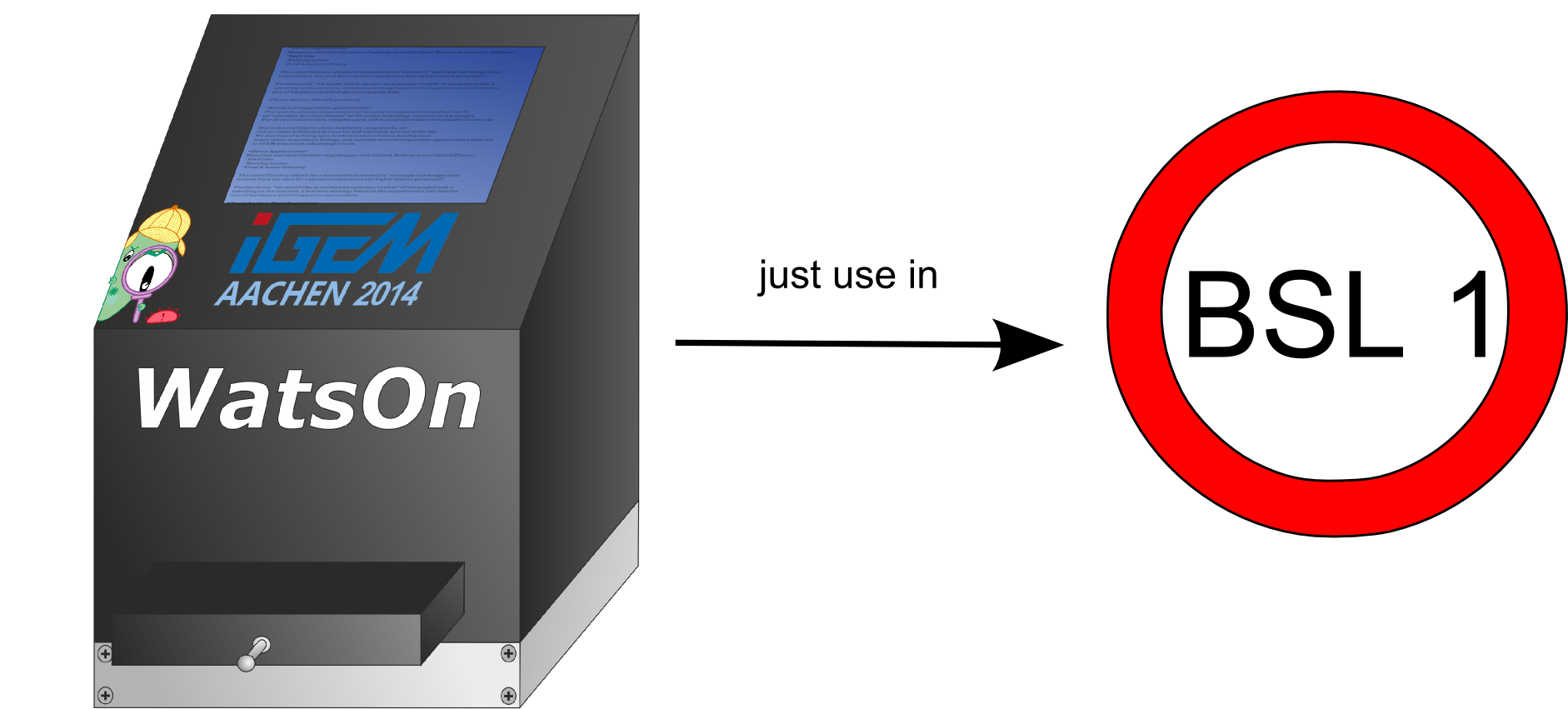Team:Aachen/Safety
From 2014.igem.org
(→Safety) |
(→Safety) |
||
| Line 5: | Line 5: | ||
= Safety = | = Safety = | ||
| - | Our iGEM team is committed to consider all aspects of the entire project, especially biosafety. For this project, two biosafety aspects have to be covered. On the one hand, we are using ''E. coli'' as '''genetically modified organism''', and on the other hand, we are detecting ''Pseudomonas aeruginosa'', an '''opportunistic human pathogen'''. It infects people suffering from cystic fibrosis or immunodeficiency as well as severe burns | + | Our iGEM team is committed to consider all aspects of the entire project, especially biosafety. For this project, two biosafety aspects have to be covered. On the one hand, we are using ''E. coli'' as '''genetically modified organism''', and on the other hand, we are detecting ''Pseudomonas aeruginosa'', an '''opportunistic human pathogen'''. It infects people suffering from cystic fibrosis or immunodeficiency as well as severe burns or open wounds. When sampling ''P. aeruginosa'', we should prevent proliferation and spread of the bacterium. For ''E. coli'', we have to take care of biological containment of a genetically modified organism. |
In general, we developed and designed the measurement device as '''closed system''' for a better safety handling. This way, neither the sampled pathogens nor the genetically modified sensor cells can escape our biosensor unit. For the detection, we are using one-time usage sampling and sensor chips which can be disposed of after '''autoclaving or irradation''' with strong UV light. Moreover, the electronic components are in a separate compartment and inaccessible for the user, preventing electric shock or other injuries. | In general, we developed and designed the measurement device as '''closed system''' for a better safety handling. This way, neither the sampled pathogens nor the genetically modified sensor cells can escape our biosensor unit. For the detection, we are using one-time usage sampling and sensor chips which can be disposed of after '''autoclaving or irradation''' with strong UV light. Moreover, the electronic components are in a separate compartment and inaccessible for the user, preventing electric shock or other injuries. | ||
Revision as of 03:44, 18 October 2014
|
 "
"

